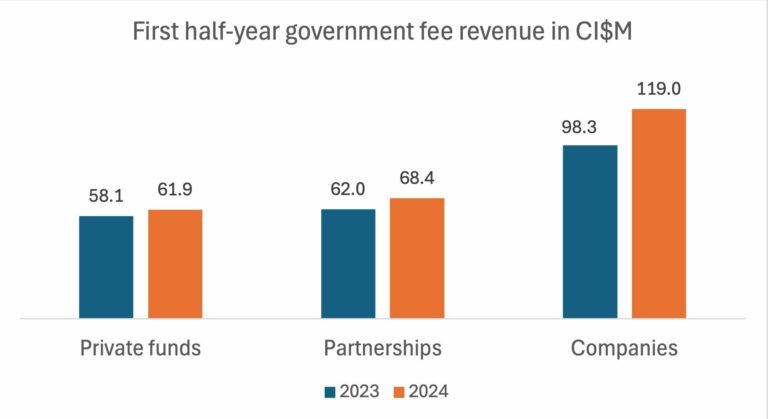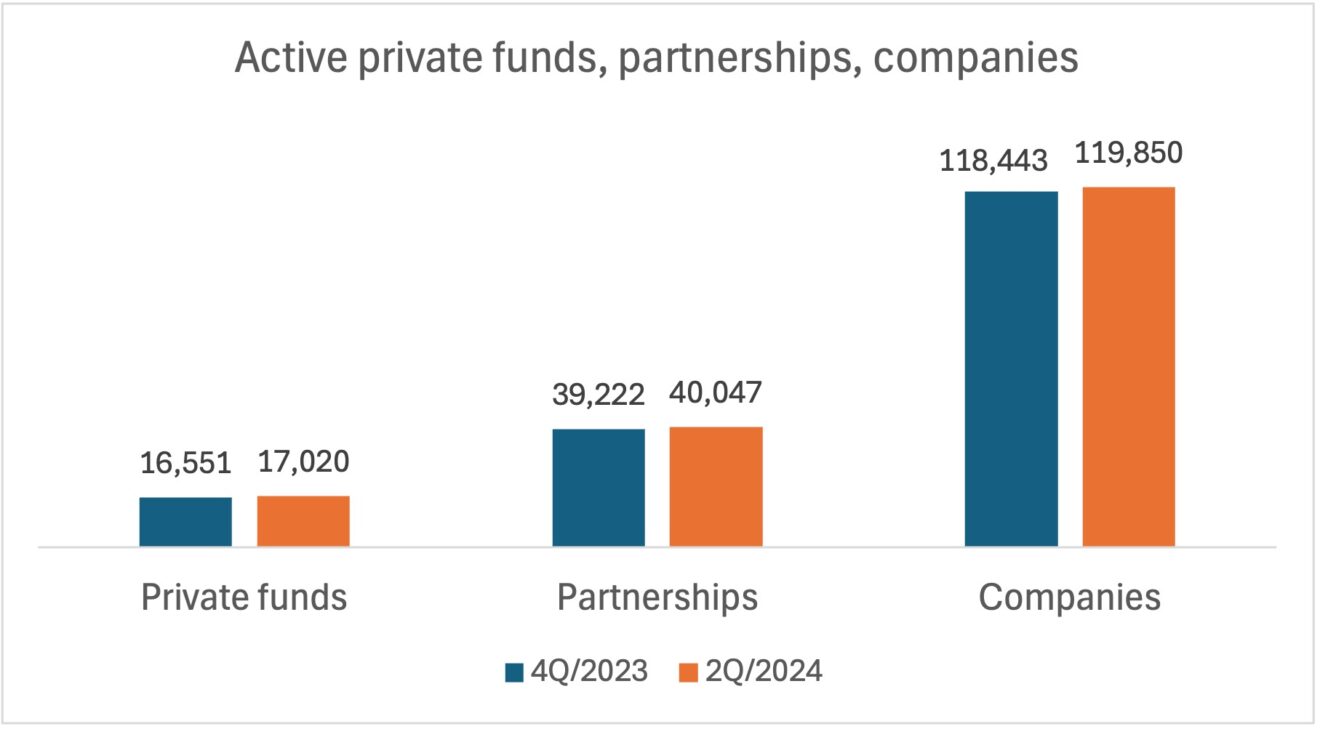
Government has increased its budget surplus in the first six months of 2024 because of higher-than-expected financial services revenues.
Government recorded a $203.2 million surplus for the core government and a $216.4 million surplus for the entire public sector, generated in part from an increase in financial services activity and higher company fees.
However, the Ministry of Finance, which released the financial report for the six-month period ending 30 June, cautioned that if planned operating and capital expenditures are made in the remainder of the year the current surplus “will be significantly reduced” as vacancies are filled and projects come online.
Most financial services and licensing fees, which make up more than one third of government’s annual revenue, are due in the first quarter. Budget surpluses achieved during the period diminish during the rest of the year when government expenses exceed revenues.
So far the public sector surplus is $55.3 million, or 33.4%, larger than budgeted.
Government revenues were $27.6 million higher than predicted, while personnel costs were $22 million lower and spending on supplies and consumables $10.6 million below the budgeted amount.
Exempt company fees alone brought in $11.7 million more following fee increases of up to 17.85% at the end of 2023.
Other annual fee increases, which were raised for the first time in years, included hikes of up to 18.5% for resident companies, 25% for limited liability companies and 33% for segregated portfolio companies.
Partnership fees and private fund fee revenues were $6.5 million and $3.5 million higher than budgeted, respectively, as a result of more registered funds.
Since the end of 2023, the number of active Cayman companies has grown by 1.2% from 118,443 to 119,850 at the end of June. In the first two quarters 6,025 company formations outweighed 4,545 terminations.
The number of active partnerships grew by 2.1% through May 2024 and exceeded 40,000 for the first time, after 1,575 partnerships were newly registered in the first five months and 750 partnerships were terminated, General Registry statistics show.
The number of private funds during the first half of the year grew by 2.8% to 17,020, while active mutual funds increased by 0.7% to 12,893.

Compared to the same period last year, revenues from exempt company fees increased by $17.9 million, partnership fee revenue was up $6.3 million and private fund fees brought in $3.8 million more.
In the first six months of 2024, financial services fees raised almost half of all government revenue. This does not include work permit and import duties paid by the financial sector.
The increased financial services sector contribution is also reflected in the financial performance of the Cayman Islands Monetary Authority (CIMA). Cayman’s financial regulator posted a $8.1 million surplus in the first half year 2024, which is $7.8 million more than budgeted.
Statutory authorities and government companies (SAGCs) overall, including CIMA, contributed $13.2 million to the surplus instead of incurring an anticipated small deficit.


